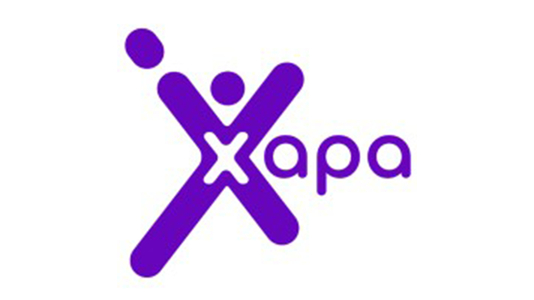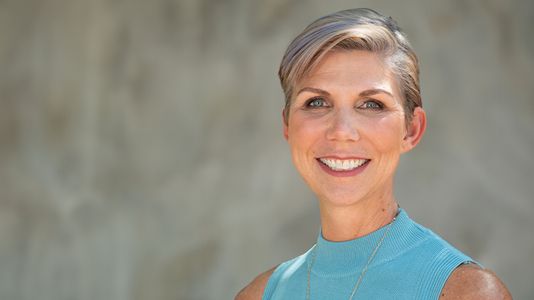

CHRISTINE HECKART
Chairman CMO Council Advisory Board, Founder & CEO
Xapa World
Christine Heckart is a 30-year veteran of the tech industry with a track record of creating new categories in business and consumer markets. Her latest company, Xapa World, is a mobile app that helps companies grow the people that grow the business. Xapa is intended to be a powerful and lasting legacy to democratize access to the competencies, programs and content that is often reserved for the wealthy, educated and powerful. It represents a fun and unique way to consume all forms of personal improvement and professional development. Today, she works with CEOs and executive teams around the world to help them achieve unparalleled business outcomes by cost effectively scaling development for leaders, managers and global talent, and providing daily practice of the skills and behaviors that are most associated with high performance. Prior to founding Xapa, Heckart was CEO of Scalyr, Inc., a data analytics company acquired by SentinelOne, with its initial public offering in 2021. She also held executive roles at Cisco, Microsoft, NetApp, and Juniper Networks, and TeleChoice, Inc. and board roles at Lam Research, a Fortune 250 semiconductor equipment company, SiTime, 6sense, Contentful, Next Gen Directors Academy at Berkeley Haas Business School, and others. Named one of the 10 top strategic thinkers and 50 most powerful people in the technology industry before she was 30, Christine has also received a variety of respected awards including the Fifty Most Powerful Women in Technology, 2016 Woman of Influence, Top 100 Silicon Valley Female Leaders, and 2020 Top Women in Cloud.
CMO COUNCIL: You have been a founding member and booster of the CMO Council for 20 years. How has the marketing leader role evolved over the past two decades driven by digital transformation?
HECKART: I still remember those early CMO Council meetings when there were no people with the title of ‘CMO’ – but it was your vision and our goal to get there. The way marketing is done has changed dramatically, several times over in the past 25 years. What hasn’t changed is the impact that a great CMO can have on the business and the market – to create and shape markets and company identity, drive strategy and business growth, inspire internal and external stakeholders. The great CMOs are second only to the CEO in their understanding of, and impact on, the success of the business. And now is no different than 20+ years ago – some CMOs rise to this challenge and excel, and many others do not.
CMO COUNCIL: What is needed to be an effective market-centered business leader and credible, organizational value multiplier today?
HECKART: Recently, at the fabulous Empowered CMO event this past July, we were asked to write a recipe for a great CMO. This was mine:
- 1 part resilience, positivity, grit and creativity
- 1 part knowing your market, customer, product, and the right problems to solve
- 2 parts building the right team, process and culture
The Recipe:
- Mix together, smother with courage, and broil under intense heat to bring out character
- Remove and garnish liberally with a sense of humor, long term perspective and executive presence
- Place on the right tech stack and serve with confidence and humility to all internal and external stakeholders
- Try pairing this recipe with a half-full glass of optimism
- For dessert we suggest a large bowl of supportive encouragement and a night cap of inspiring vision
As this recipe shows, being a great CMO starts with the intangibles! But it also includes a lot of expertise in the market. One mistake I think we made in inventing the CMO title is that we called it the chief marketing officer, instead of the chief market officer. That ‘ing’ gets marketers into trouble, because everything becomes about the tactical ‘ing’ instead of the MARKET. A great CMO deeply understands the market they shape, inspire, lead and serve. They understand the buyers and their problems, the products and how those products/services address the problem, the competition and how your company differentiates itself (be different, not just better). The ‘ing’ is in service to the strategy and the market. The great CMO isn’t at the back of the board deck, but at the front of the boardroom, driving strategy, culture/brand, and winning hearts and minds. There’s so much that goes into being a great CMO. The job has become incredibly complex and ever-changing. But one thing that doesn’t change is the need for resilience, grit, leadership and courage – not just for the CMO, but for the team.
CMO COUNCIL: What are the requirements to lead, motivate and inspire today’s workforce?
HECKART: Everything starts with the High5, for leaders and for high performing teams and cultures. The High5 are the five competencies most associated with high performance, in life and at work. High performing teams practice behaviors that reflect and embody the High5. Specifically, they are:
- Self-Awareness: The is foundational for all success, and the more we understand and ‘own’ our own strengths, values, capabilities, weaknesses, blind spots, etc., the more effective we are as leaders, team members, family members, and the more resilient we will become.
- Self-Control: I can’t control the world, but I can control how I respond. Self-control includes resilience and grit, growth mindset, positivity, the ability to reframe, and the muscle to not just bounce back from setbacks but bounce forward.
- Self-Care: This is about creating the habits and environment so you can perform at your best, mentally and physically, over the long haul.
- Communications: How you speak to yourself, and to others, impacts how you influence and get things done. Influence and impact are highly reliant on effective communications, especially in high stakes situations.
- Trust: This includes both self-trust and the ability to assess and build trust with others.
CMO COUNCIL: How do you measure impact and legacy?
HECKART: With 35 years in the tech industry, growing up in new product development, I’ve seen a lot come and go. Products I’ve created, teams I’ve built, companies I’ve worked for, whole ecosystems – they come and the go. The only lasting legacy that most of us ever create is the impact we have on others… positive or negative. My focus has been to create a positive legacy of helping and supporting others to envision and achieve more than they ever thought possible. I try to see the best in people and help them see it too. I try to help myself and others become their best self and bring that person into each situation. This is why I started Xapa – to do this for people at scale and leave a positive legacy in the lives of people everywhere. And it’s how I measure success.
